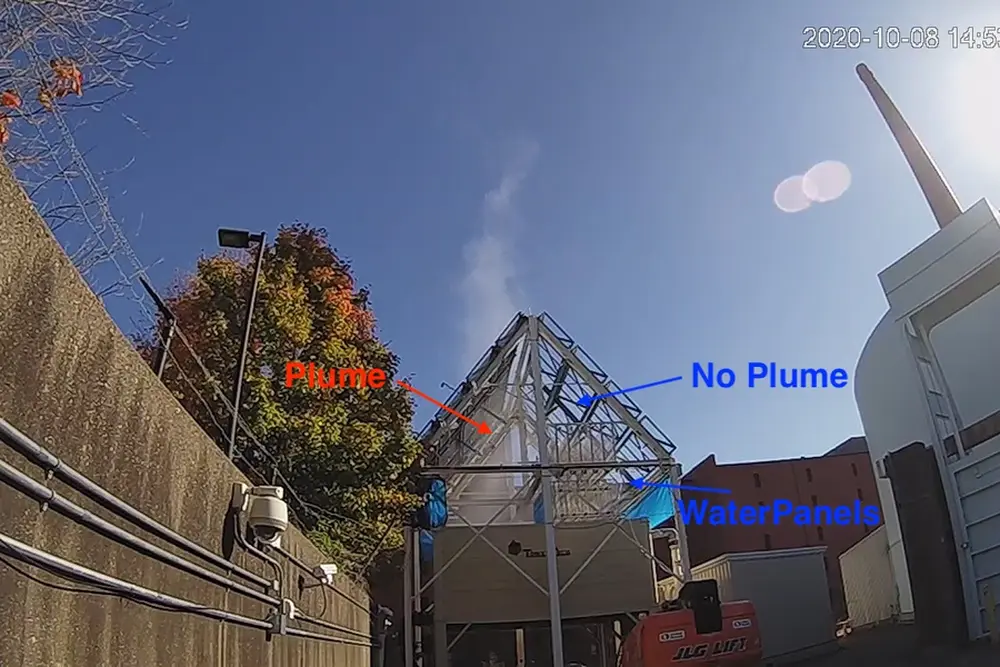MIT’s Innovative Method to Reuse Water in Power Plants
Massachusetts Institute of Technology (MIT) has developed a steam collector that captures pure water for reuse in power plants. The amount of cooling required by any steam-cycle power plant is determined by its thermal efficiency.
However, in the nuclear and fossil fuel power plants the cooling function to condense the steam consumes a huge amount of water for cooling when done through the indirect cooling process.

Image: Vencav/Depositphotos
Indirect cooling is done by transferring the steam through the condenser and afterward using a cooling tower. Usually cooling is mainly done through evaporation which consequently goes to waste as water vapor.
Now, engineers at MIT have found an innovative way out to reuse this water. They have developed a system that captures pure water that can be reused. Systems which were previously used consist of a plastic or metal mesh hung vertically in the path of fog banks, making vapors extremely inefficient.
To make vapor collection much more efficient, tiny droplets of water are zapped with a beam of ions to provide a slight electric charge making the droplets attach to the mesh because it consists of opposite electrical charge. Due to gravity, they fall away and are collected in trays placed below the mesh.
Also Read: MIT Offshoot Sistine Solar Develops SolarSkin
Series of lab tests were conducted to check the credibility of the concept. The team tested the system in two of MIT’s research power plant facilities, one powered by natural gas and the other nuclear power. In both the tests, the captured water was extremely pure, 60 times purer than what normally goes into a power plant cooling system.
The team claimed that the water could also be piped back into a general water supply. The cooling tower of MIT’s nuclear plant has successfully shown the effectiveness of the new water recovery system.
Via: New Atlas



